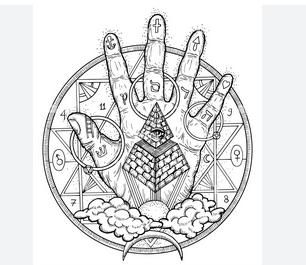What is esoteric thought and practice
Esoteric thought and practice encompass a broad range of spiritual, philosophical, and mystical traditions that emphasize the attainment of spiritual knowledge, self-realization, and enlightenment. The term “esoteric” comes from the Greek word “esoterikos,” meaning “inner” or “reserved for the initiated.”
Key Characteristics
Esoteric thought and practice are characterized by the following key elements:
- Spiritual seekership: Esoteric traditions emphasize the individual’s quest for spiritual knowledge, self-realization, and enlightenment.
- Mystical and symbolic language: Esoteric texts and teachings often employ mystical and symbolic language to convey spiritual truths and principles.
- Initiatic and hierarchical structure: Many esoteric traditions have an initiatic structure, where spiritual knowledge and power are transmitted from a teacher or guru to a student or disciple.
- Emphasis on personal transformation: Esoteric practices aim to transform the individual’s consciousness, leading to spiritual growth, self-realization, and enlightenment.
- Holistic and integrative approach: Esoteric traditions often integrate various aspects of human experience, including spirituality, philosophy, psychology, and physiology.
Esoteric Traditions
Some notable esoteric traditions include:
- Hermeticism: Based on the teachings of Hermes Trismegistus, Hermeticism emphasizes the unity of all things, the interconnectedness of macrocosm and microcosm, and the attainment of spiritual wisdom.
- Gnosticism: A Christian esoteric tradition that emphasizes the attainment of spiritual knowledge (gnosis) and the realization of the divine within.
- Alchemy: A medieval esoteric tradition that aimed to transform base metals into gold and attain spiritual enlightenment through the manipulation of material substances.
- Theosophy: A modern esoteric tradition founded by Helena Blavatsky and Henry Steel Olcott, emphasizing the unity of all existence, the law of karma, and the attainment of spiritual wisdom.
- Rosicrucianism: A 17th-century esoteric tradition that emphasized the attainment of spiritual wisdom, the unity of all existence, and the transformation of the individual through spiritual practices.
- Kabbalah: A Jewish esoteric tradition that emphasizes the mystical interpretation of the Torah, the attainment of spiritual wisdom, and the realization of the divine within.
- Sufism: A Muslim esoteric tradition that emphasizes the attainment of spiritual love, the realization of the divine within, and the transformation of the individual through spiritual practices.
Esoteric Practices
Some common esoteric practices include:
- Meditation: A practice aimed at quieting the mind, focusing the attention, and attaining spiritual insight.
- Visualization: A practice that involves the use of imagination and visualization techniques to access spiritual realms and attain spiritual insight.
- Ritual and ceremony: The use of ritual and ceremony to mark important life events, connect with spiritual forces, and attain spiritual growth.
- Divination: The use of various techniques, such as tarot cards, astrology, and scrying, to gain insight into the future and understand spiritual truths.
- Spiritual journaling: The practice of recording spiritual insights, dreams, and experiences to reflect on spiritual growth and progress.
Influence and Impact
Esoteric thought and practice have had a significant influence on Western spirituality, philosophy, and culture. Many esoteric traditions have contributed to the development of modern spirituality, psychology, and philosophy.
Esoteric thought and practice have also influenced art, literature, and music, inspiring creative works that reflect spiritual themes and motifs.
Criticisms and Controversies
Esoteric thought and practice have faced criticisms and controversies, including:
- Lack of empirical evidence: Esoteric claims and practices are often based on spiritual experiences and intuitions, rather than empirical evidence.
- Cult-like behavior: Some esoteric groups and traditions have been criticized for their cult-like behavior, including authoritarian leadership, emotional manipulation, and financial exploitation.
- Superstition and dogma: Esoteric thought and practice can sometimes be associated with superstition and dogma, rather than critical thinking and intellectual curiosity.
Conclusion
Esoteric thought and practice encompass a diverse range of spiritual, philosophical, and mystical traditions that emphasize the attainment of spiritual knowledge, self-realization, and enlightenment. As with any spiritual or philosophical tradition, it is essential to approach esoteric thought and practice with critical thinking, intellectual curiosity, and a nuanced understanding of their complexities and challenges.





